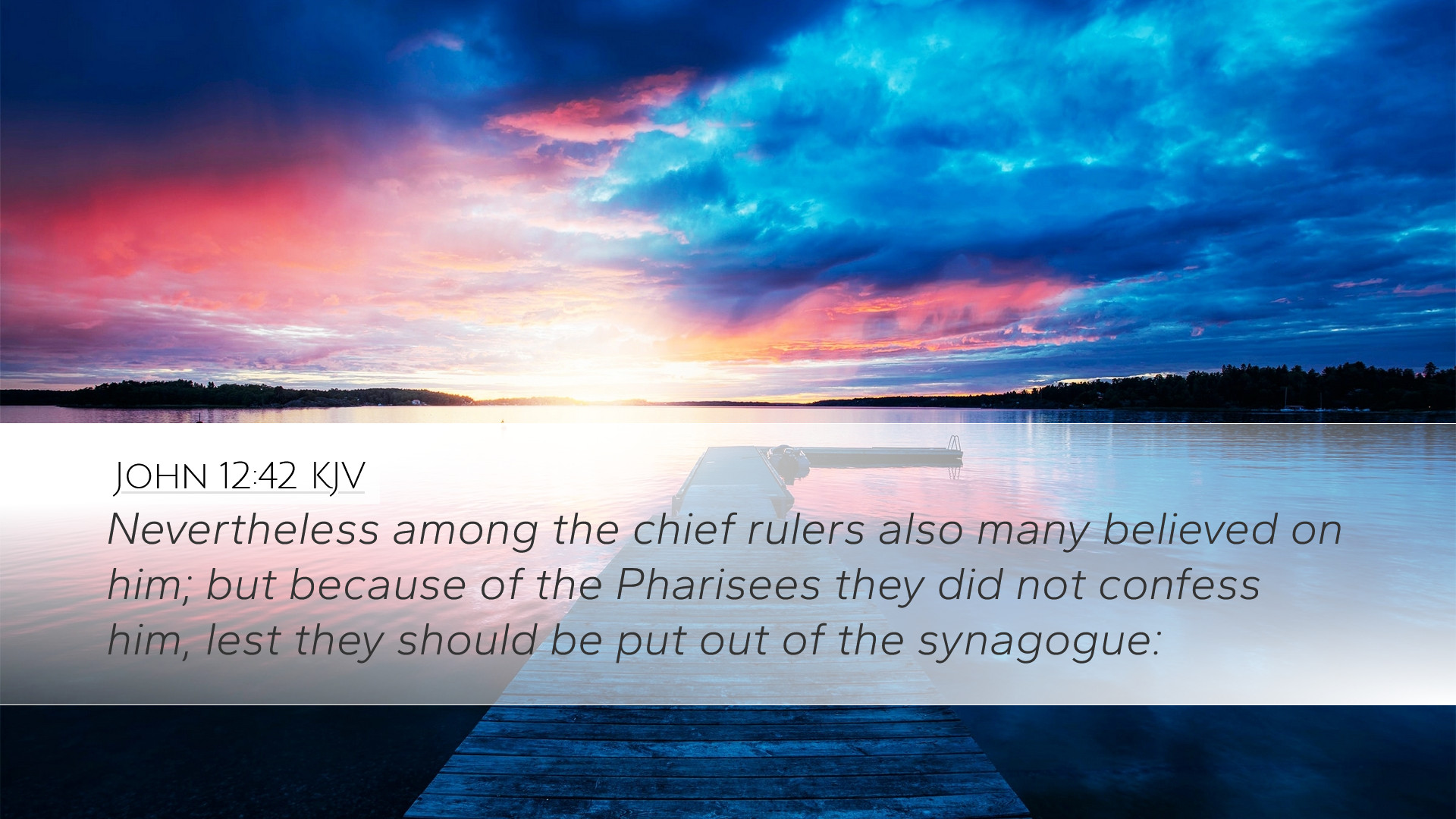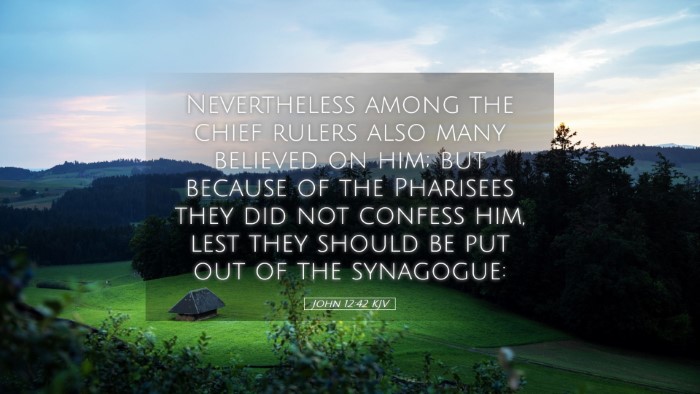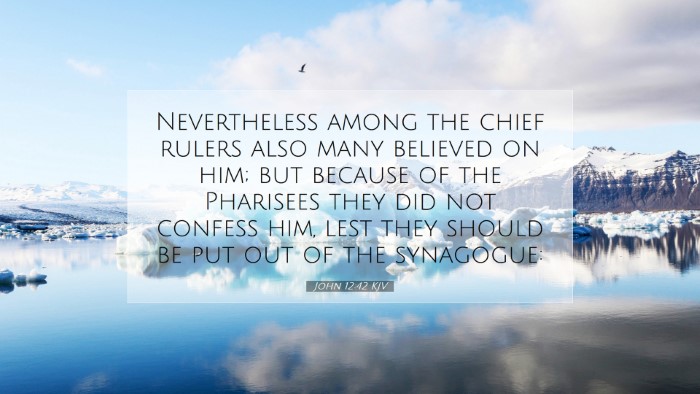Commentary on John 12:42
Verse Text: "Nevertheless among the chief rulers also many believed on him; but because of the Pharisees they did not confess him, lest they should be put out of the synagogue."
Introduction
This verse from the Gospel of John serves as a critical reflection on the dynamics of faith and public confession. It captures the tension between belief and social acceptance, particularly among influential figures in Jewish society. The insights provided by various public domain commentaries help illuminate the complexities surrounding this passage.
Contextual Analysis
In the latter part of John 12, the author summarizes the responses of different groups to Jesus's ministry before His Passion. This verse marks a significant turn, highlighting that even among the chief rulers—who were often seen as opponents of Jesus—there were those who recognized His divine authority and grace.
Historical Background
- The "chief rulers" likely refers to members of the Sanhedrin, the ruling council of the Jews, which included Pharisees and Sadducees.
- During Jesus's ministry, public opinion was often swayed by the prevailing religious leaders, which created an atmosphere of fear and repression regarding open faith in Christ.
- The synagogue was central to Jewish life, making excommunication a severe consequence that these rulers feared.
Insights from Public Domain Commentaries
Matthew Henry
Matthew Henry highlights that despite the genuine belief in Christ among the chief rulers, their fear of social ostracism held them back from public confession. He notes that this reveals the conflict between a true and living faith and the desire for societal acceptance. Henry cautions believers to examine their own hearts regarding the influences of social standing on their witness for Christ.
Albert Barnes
Albert Barnes observes that the belief of these rulers was significant because it contradicted the expected hostility from this group. He emphasizes that belief without confession is incomplete, and the rulers' choice to remain silent showcases a lack of courage to stand against the prevailing opposition. Barnes argues that true faith seeks expression and that fear of man can often stifle righteous actions.
Adam Clarke
Adam Clarke elaborates on the implications of this verse, suggesting that the rulers were caught between their recognition of Jesus as the Messiah and the pressure to conform to the Pharisaical expectations. Clarke emphasizes that this internal conflict is not isolated, but a common struggle among believers throughout the ages. He encourages Christians to find strength in the Holy Spirit to confess Christ boldly, regardless of potential repercussions.
Theological Implications
This verse presents essential theological questions regarding faith, confession, and the nature of true belief. The reluctance to confess suggests that faith can be genuine yet inhibited by fear, which leads to important discussions for theologians:
- The Nature of Faith: Is faith that remains unconfessed truly saving faith? This verse implies that faith should manifest in witness and action.
- The Cost of Discipleship: The fear of being “put out of the synagogue” illustrates the social costs associated with following Christ. This raises questions about the sacrifices required for true discipleship.
- Public vs. Private Faith: The contrast between internal belief and external declaration must be examined. How do contemporary believers navigate this tension?
Practical Applications
For pastors, students, and scholars, this verse beckons deeper reflection on how the fear of societal rejection can hinder witnessing. Below are practical applications:
- Encourage Boldness: Church leaders should teach and model how to express faith openly and enthusiastically, even in challenging contexts.
- Develop Supportive Communities: Creating a culture within the church where believers can share their faith without fear of repercussion fosters a stronger collective witness.
- Provide Teaching on Consequences: Address the realities of societal pushback and reinforce that God's acceptance far outweighs human approval.
Conclusion
John 12:42 serves as a poignant reminder of the struggles faced by believers to affirm their faith publicly. By examining the insights of Matthew Henry, Albert Barnes, and Adam Clarke, we gain a multi-faceted understanding of this crucial scripture. The need for courage in confession remains a relevant challenge for contemporary believers as they navigate their faith in a complex world.


